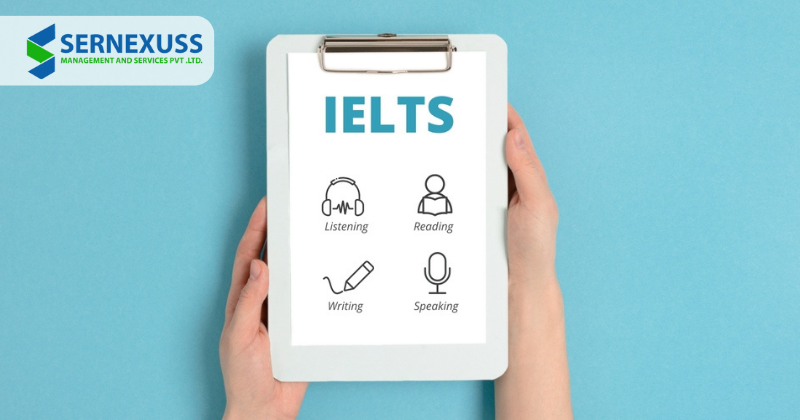What is the role played by vocabulary in the IELTS test, and how significant is it?
Every candidate preparing for the IELTS test knows the significance of good vocabulary knowledge will help them achieve a great score on the test. Vocabulary is one of the keys to success in the IELTS exam.
What is the role played by vocabulary in the IELTS test, and how significant is it?
The more vocabulary a candidate knows, the more they can understand the listening and reading sections of IELTS. Similarly, the more words they know, the more they can prove their communication skills in the writing and speaking sections of the IELTS.
IELTS has particular evaluation criteria for the writing and speaking sections. Knowledge of vocabulary (labeled ‘Lexical Resource’) is one of the four fields candidates get evaluated on in each of the two skills. Candidates get a final score that is the average across the four sections. So, yes, vocabulary is very significant in the International English Language Test; it plays a crucial role in the speaking and writing scores and is one of the keys to success in IELTS.
So how to improve vocabulary knowledge for IELTS? You can find the answer below.
Tips and hints for improving vocabulary
Many candidates try to keep a list of new words and their meanings which they study, learn and practice for memory. It is a good beginning in IELTS preparation, but there are many other things; a candidate can practice making the learning of vocabulary easy and successful. Here is a list of some ideas; a candidate can follow step-by-step to learn vocabulary.
The first thing a candidate should think about is; what does it mean to learn a new word? To know a new word candidate has to find out the following:
- Dictionary description: What is the meaning of the word?
- Spelling: How does the word get written?
- Pronunciation: The way words get spoken, and what’s the stress?
- Grammar: Is it a noun, verb, or adjective? Can we change it, and if yes, does the spelling or pronunciation get affected?
- Collocation: What word or words does it usually go with? Example- fast + food.
- How does the word gets used? It is a better idea to write example sentences in your vocabulary records.
- Synonyms and antonyms: What words have a similar meaning, and what words have an opposite meaning?
The above-mentioned eight points are the foremost steps toward learning a new word. A candidate doing vocabulary record-keeping must include all these factors.
Paraphrasing
Rephrasing, or searching for new methods to say a similar thing, is another significant vocabulary skill for candidates to develop. It means a candidate should explore words with the same meaning or synonyms. Paraphrasing is a language skill related to all sections of the IELTS skills tests. For instance, in IELTS General Training and IELTS academic writing tests, candidates have to paraphrase Task 1 and Task 2 in their answers. In the reading and listening sections of the IELTS, the candidate should be able to take out the keywords in the questions.
Word Families
A word does not live alone. They stay in a group of associated meanings in our mind, and it can be a better option to keep them stored this way in our vocabulary records.
Other ways to think and store vocabulary can be to think about antonyms (opposites), as it.
When candidates study for their IELTS test, they should consider taking time about various word families and relationships. There are lots of tasks in the IELTS test that deal with chief relationships like effect/cause and problem/solution.
Chunks of language
Like other languages, the English language also has various special expressions or phrases; These are distinct groups of words, chunks of language, that have different meanings when we use them all together but have different meanings when separated. The only method to know these expressions is to keep them as a chunk of language. Follow the below-mentioned steps to do this:
- Candidate should write the expression, e.g. only time will tell.
- Now, the candidate should add the meaning of the group of words: only time will tell- should wait and see what the future holds.
- The candidate should try adding an example sentence to show how to use the expression: I think I’ve done fine in my test, but only time will tell.
Always remember that these special expressions are generally useful in the speaking section; Candidates should not use these phrases if they do not know their meanings.
Which vocabulary to focus on for IELTS
An English native speaker averagely uses a vocabulary of 20,000 to 30,000 words. Vocabulary plays a significant role and is one of the keys to success in the IELTS exam. This might sound crazy and stressful to the candidates preparing to take IELTS tests, but they should not get worried as there are multiple ways through which we can limit vocabulary and learn words useful for the test.
Topic related vocabulary
Multiple subjects usually appear in the IELTS test. While we can never be sure about the coming topics in the IELTS test, the below-mentioned topic list is a good option to start. These topics can come in any section of the IELTS section, and candidates can get asked to talk or write about them, or they can either be a part of the reading or listening section:
- health and fitness
- education
- technology
- the environment
- pollution
- climate and weather
- shopping
- transportation
The candidate does not have to learn and record any special technical terminology, for instance, the vocabulary usually used in medical or scientific texts or discussions.
